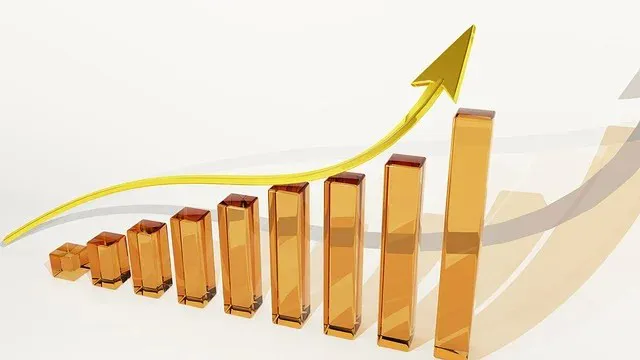If there's one big lesson I learned from Robert Kiyosaki, it's this statement, "Profit is made when you buy not necessarily when you sell". This means the profit you will make in the future will be dependent on how your ability to recognize good portfolios and buy at the right prices.
This is important because we have seen how some investors buy low-quality securities during favorable business or market conditions. What often happens is that they measure the prospect of certain stocks being a good and tangible investment portfolio by the fact that the business must have had excellent growth for 2 or 3 years.

Source
These stocks are often bought for high prices without any adequate margin of safety. And before you know it, once the booming market period is over, they tend to see a decline in the earning powers of these stocks. In such cases where investment decisions were taken upon fair weather portfolio, most Investors usually wait on end hoping for a recovery.
Diversification: An established tenet of conservative investment
It's not farfetched that I'll be talking about diversification when deciding the margin of safety. This is because Benjamin Graham in his book, The Intelligent Investors, directly points out that you cannot talk about margin of safety without talking about diversification.
This is because a fair quality that an investor should have is the sheer intelligence to not put all his eggs in one basket. It will bring his money great value if he embraces diversification. Mostly because there is often a tendency to encounter big losses in a portfolio even though they might have predicated huge profits.
Sometimes, this mistake is said to be made when they depend on speculations to make buying decisions instead of treating their investment portfolio as a business. Whereby, every business owner ought to learn the vicissitudes of his business and take proper care of the circumstances that lead to growth, success, and scaling.
Once an investor begins to see his investment journey as his personal business, he will retrace his steps from taking advice from speculators and look closely for an inherent value in the portfolio he is investing in.
Although some stocks often have low prices at certain market conditions, especially a bear market, investors can still invest in securities or portfolios that are trading for less than their inherent or intrinsic value. These are investment portfolio that has a value that is more than the market quotation.
When there is a fair chance to yield a reasonable profit, and you are sure that you will be on the safe side whereby your losses will be minimal if things go wrong, then there should be no hesitation on an your part to take the bull by the horns and invest. It doesn't matter if other people see this value or not. Good investors mostly do not wait around for the crowd to clap for their decisions. As long as your data and reasonings are right plus a sound judgment, then, go for it, and invest your way to financial independence.
Reference: The Intelligent Investor by Benjamin Graham
More from iska
Your pursuit of financial freedom requires more bullets now than cannonballs
Building confidence and the value of your creativity through a relentless discipline to build wealth
The magic wand of wealth building is self-control
Earning an ROI on luck is possible
Winning the game of wealth building using empirical evidence
A legitimate form of discipline needed to build wealth
Why financial pessimist tend to have more audience than optimist
When people buy the top they are mostly chasing performance
Everything has a price including your desire to reach financial independence
Plan for emergencies for they are an inevitable part of our existence
Striking a balance in your investment portfolio reduces future regrets
Invest in something cared about, and there can't be a loss
The quickest way to have less money is to spend it to show people how much you have
Controlling your time is the biggest dividend money pays
The Surprising Role Luck Plays in Building and Sustaining Wealth